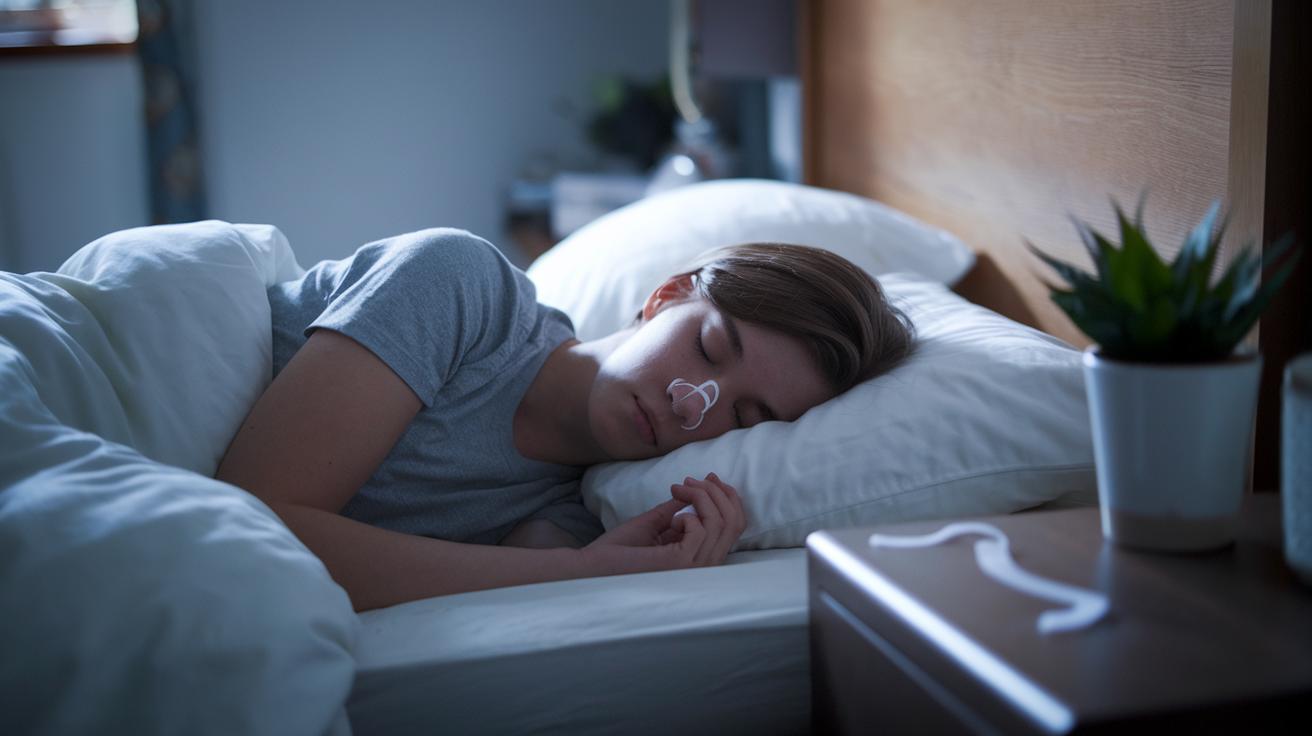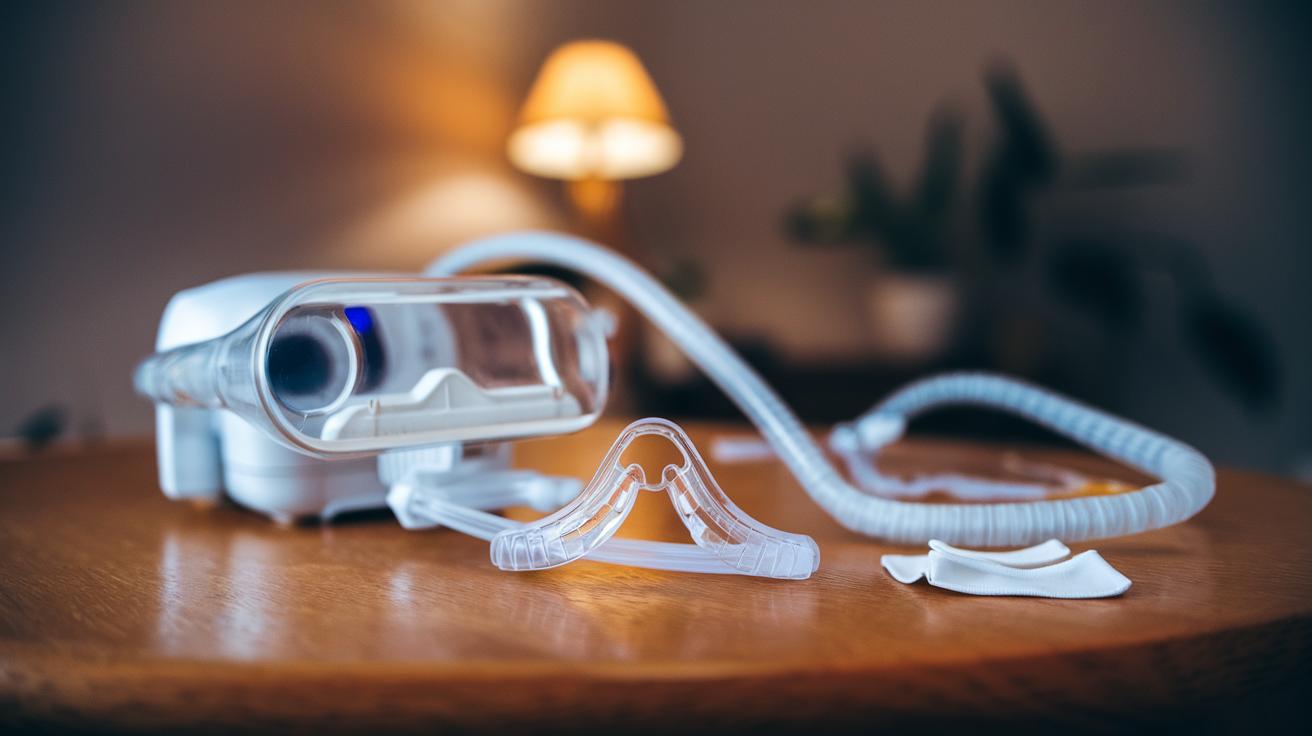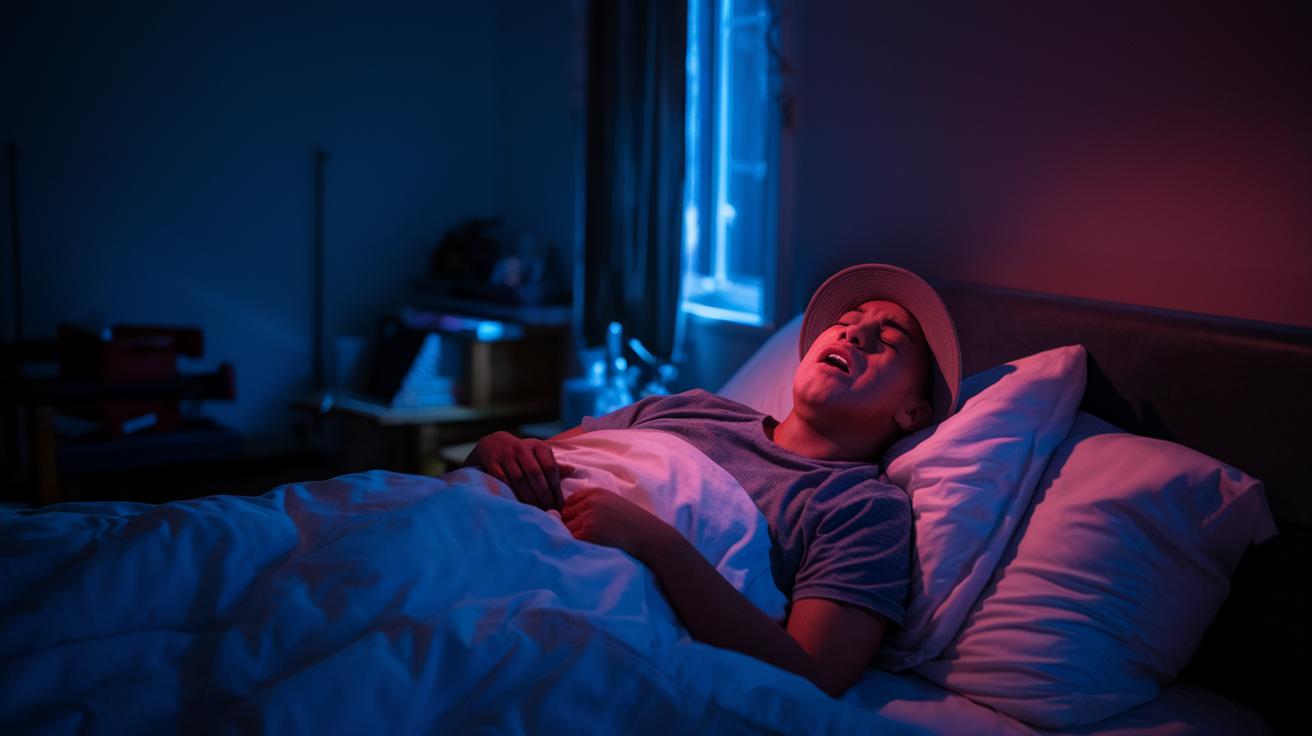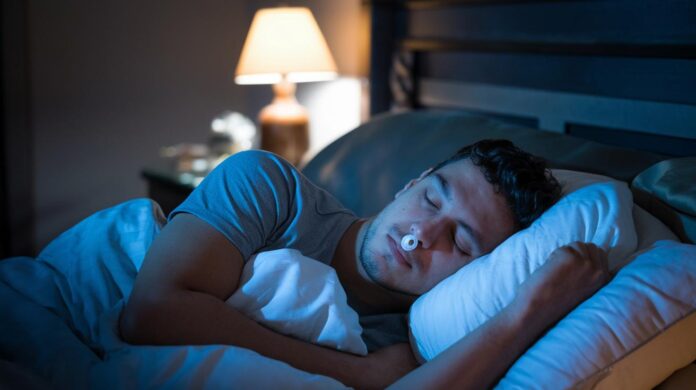Is snoring turning your restful nights into a noisy ordeal, not just for you but for those around you? While often dismissed as a harmless inconvenience, snoring can indicate deeper health issues requiring attention. Discovering effective methods to stop snoring involves understanding its causes, including anatomical factors, lifestyle habits, and sleeping positions. By identifying the root causes, one can pursue targeted solutions that manage the cacophony and improve sleep quality. This article explores simple and practical remedies to help you reclaim peaceful nights and safeguard your health.
Understanding the Causes of Snoring

Snoring is often rooted in anatomical factors related to the nasal and throat regions. The structure of a person's airway can greatly influence their propensity to snore. When the muscles in the throat relax excessively during sleep, the airway narrows, causing vibrations as air passes through—resulting in the familiar snoring sound. Deviated septum, enlarged tonsils, or a long uvula can exacerbate these vibrations, making snoring more likely and pronounced.
Lifestyle choices also play a significant role in snoring. Obesity is a major risk factor, as excess fat around the neck can compress the airway, increasing the likelihood of snoring. Alcohol consumption before bed can relax throat muscles, intensifying the obstruction of airflow. Smoking, too, irritates the mucous membranes, leading to congestion and inflamed airways, which can contribute to snoring. Each of these factors can independently or collectively heighten snoring severity.
Sleeping positions and other minor factors can further contribute to snoring. Sleeping on one's back can cause the tongue to collapse to the back of the throat, obstructing airflow and leading to snoring. Nasal congestion from allergies or a cold can also restrict airflow, forcing the sleeper to breathe through their mouth. Addressing these positional and environmental factors can be a crucial step in reducing snoring frequency and intensity.
Effective Snoring Remedies and Solutions

Addressing snoring often involves a combination of lifestyle modifications and practical remedies. For those seeking relief, there are both conventional and natural solutions available. These can range from altering daily habits to utilizing specific products aimed at reducing snoring intensity and frequency.
Lifestyle Changes and Home Remedies
Lifestyle changes can significantly impact snoring. Weight loss is a critical factor for individuals with excess weight around the neck, as reducing it can minimize airway obstruction. Avoiding alcohol, especially before bedtime, helps maintain muscle tone in the throat, reducing vibration-causing blockages. Switching sleeping positions, such as sleeping on one's side rather than the back, may prevent the tongue from blocking the airway.
Incorporating simple home remedies can further alleviate snoring:
- Nasal strips: These help widen nasal passages, enhancing airflow.
- Humidifiers: By adding moisture to the air, these devices can soothe irritated airways.
- Elevating the head of the bed: This can prevent airway collapse by keeping the throat in an open position.
- Anti-snoring pillows: Designed to position the head and neck optimally, these pillows can reduce snoring.
- Throat exercises: Strengthening throat muscles can decrease the likelihood of snoring by improving muscular control.
Natural and Herbal Solutions
For those interested in natural approaches, several remedies have shown promise in reducing snoring. Essential oils, such as peppermint and eucalyptus, can be inhaled to reduce nasal congestion. Herbal teas containing ingredients like chamomile and spearmint may relax throat muscles and improve breathing patterns.
- Peppermint oil: Known for its decongestant properties, it can be used in a diffuser or applied topically.
- Chamomile tea: This calming tea can relax the throat and reduce snoring.
- Eucalyptus oil: Its inhalation can help clear blocked airways.
- Spearmint tea: Known for its anti-inflammatory properties, it can reduce throat irritation and snoring.
These solutions, when applied consistently, offer a comprehensive approach to managing snoring effectively.
Exploring Devices and Medical Treatments for Snoring

Devices play a significant role in the management and reduction of snoring, offering a range of options tailored to individual needs. Snoring can be addressed through various devices designed to improve airflow and reduce obstructions in the airway. These devices provide non-invasive solutions that many find effective in mitigating the symptoms associated with snoring, enhancing sleep quality for the individual and their partner.
- CPAP Machines: Continuous Positive Airway Pressure (CPAP) machines deliver a steady stream of air through a mask, keeping the airway open during sleep and are especially beneficial for individuals with sleep apnea.
- Mouthpieces: Dental devices, such as mandibular advancement devices, reposition the lower jaw and tongue forward, reducing airway obstruction and minimizing snoring sounds.
- Nasal Strips: These adhesive strips are placed on the outside of the nose to widen the nostrils and improve nasal airflow, decreasing snoring caused by nasal congestion.
- Chin Straps: Designed to support the jaw and keep the mouth closed, chin straps encourage nasal breathing, which can reduce snoring.
- Positional Devices: These devices help maintain a side-sleeping position, preventing the tongue from collapsing backward and blocking the airway.
When snoring remains persistent despite using these devices, it may be time to consider medical treatments and seek professional consultation. Surgical options, such as uvulopalatopharyngoplasty (UPPP) or radiofrequency tissue ablation, might be recommended for severe cases where anatomical obstructions significantly contribute to snoring. Consulting with an ear, nose, and throat (ENT) specialist can provide a comprehensive evaluation and guide individuals toward appropriate treatment options, ensuring a tailored approach to effectively address snoring concerns.
The Impact of Snoring on Sleep Quality and Health

Snoring can severely affect sleep quality, often serving as a precursor to sleep apnea, a serious sleep disorder. Sleep apnea is characterized by repeated interruptions in breathing during sleep, leading to fragmented sleep patterns and reduced oxygen levels in the blood. These interruptions prevent individuals from reaching the restorative deep sleep phases, resulting in daytime drowsiness and impaired cognitive function. Addressing snoring is crucial, as it can be a visible symptom of underlying sleep apnea, necessitating medical evaluation to prevent adverse effects on overall sleep quality.
Beyond disrupting sleep, snoring poses significant health risks, particularly concerning cardiovascular health. Chronic snoring and untreated sleep apnea increase the risk of developing hypertension, heart disease, and stroke due to the strain placed on the cardiovascular system from repeated oxygen deprivation. Additionally, poor sleep quality caused by snoring can lead to chronic fatigue, affecting daily productivity and increasing the risk of accidents. Recognizing the broader health implications of snoring is essential for managing its impact, underscoring the importance of seeking professional advice and implementing effective interventions to safeguard both sleep and overall health.
When and How to Seek Professional Help for Snoring

Persistent snoring, especially when severe or accompanied by symptoms such as gasping, choking, or excessive daytime sleepiness, may necessitate professional medical advice. These symptoms could indicate the presence of sleep apnea, a condition that requires medical intervention to prevent potential health complications. If lifestyle changes and over-the-counter remedies fail to alleviate snoring, it is advisable to consult a healthcare professional to identify any underlying issues.
Ear, nose, and throat (ENT) specialists are equipped to assess and treat snoring-related concerns. They can conduct thorough evaluations to diagnose conditions like sleep apnea or anatomical obstructions. Potential treatments offered by ENT specialists may include continuous positive airway pressure (CPAP) therapy, surgical interventions, or custom-fitted oral appliances. Consulting with an ENT specialist ensures a tailored approach, addressing the specific causes of snoring and optimizing treatment outcomes.
Final Words
Understanding the causes of snoring involves recognizing nasal and throat anatomical factors, lifestyle elements such as obesity and alcohol use, and habitual sleeping positions. Effective remedies include lifestyle changes and home remedies like nasal strips, while natural solutions offer alternatives through essential oils and herbal teas. Devices like CPAP machines and mouthpieces serve as actionable treatments, with medical consultations advised for severe cases. Snoring significantly impairs sleep quality, posing risks of sleep apnea and cardiovascular issues. Professional guidance is vital when symptoms escalate. Discovering how to stop snoring is pivotal in enhancing sleep and overall well-being.
FAQ
What causes snoring?
Snoring can be caused by anatomical factors such as nasal and throat structures, lifestyle habits like obesity and alcohol consumption, and sleeping positions.
How can lifestyle changes help reduce snoring?
Lifestyle changes such as losing weight, avoiding alcohol, and sleeping on one's side can effectively reduce snoring incidents.
What home remedies are available for snoring?
Home remedies include using nasal strips, humidifiers, maintaining a healthy sleep environment, and ensuring adequate hydration before bed.
What natural and herbal solutions exist for snoring?
Natural solutions for snoring involve essential oils, herbal teas, throat exercises, and elevating the head during sleep.
What devices can help stop snoring?
Devices like CPAP machines, mouthpieces, nasal dilators, chin straps, and positional pillows are commonly used to alleviate snoring.
When should one consider medical treatments for snoring?
Medical treatments should be considered if snoring is severe or linked to sleep apnea, impacting health and quality of life.
How does snoring affect sleep quality?
Snoring can degrade sleep quality and is associated with sleep apnea, causing frequent awakenings and restlessness.
What health risks are linked to snoring?
Health risks associated with snoring include potential cardiovascular issues and chronic fatigue due to disturbed sleep patterns.
When is it necessary to seek professional help for snoring?
Professional help should be sought when snoring is severe or accompanied by symptoms such as daytime fatigue, suggesting sleep apnea.
Who can help with diagnosing and treating snoring?
ENT specialists can diagnose and offer treatments for snoring, focusing on underlying conditions and providing medical and surgical options.


